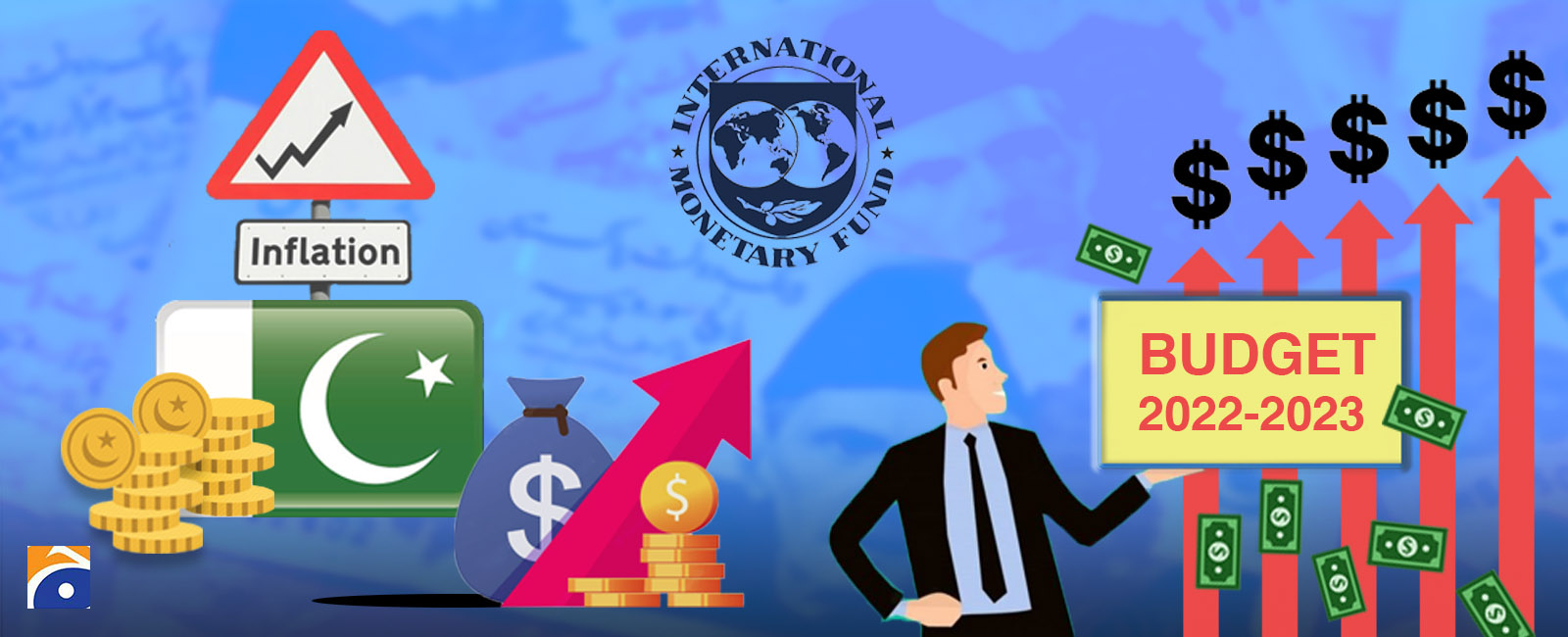Five key things to look out for in budget today
Budget for fiscal year 2022-23 is being touted by recently formed government as "progressive, pro-people and business-friendly"

The upcoming budget for the fiscal year 2022-23, which is set to be rolled out on June 10 (Friday), is being touted by the recently formed government as "progressive, pro-people and business-friendly" with an overall focus on increasing revenues.
A few months ago, expectations were skewed more towards consolidation given that Pakistan has been trying to revive the stalled multi-billion dollar International Monetary Fund (IMF) programme.
However, with the arrival of Miftah Ismail as federal minister for finance, who categorically stated that his efforts during his tenure will be concentrated towards bringing budget deficit below 5% of the GDP and controlling inflation, it is expected that the upcoming budget will target higher growth next fiscal year.
In this regard, the government has been holding discussions with the IMF to finalise its strategy, with the international body advocating prudent policies and measures for fiscal consolidation.
With Pakistan already negotiating for the maximum possible fiscal space to develop a growth-focused budget with restricted expenditure on the development side and removal of subsidies, it can be said that economic growth, improved employment, political support measures and managing fiscal imbalances will be the salient features of the upcoming budget.
Moreover, development in infrastructure, agriculture, the manufacturing and social sectors, as well as reforms in governance and boosting private sector investment are expected to be on the priority list.
Here are five key things to look out for:
1. Will the budget satisfy the IMF?
The new coalition government is eyeing the revival of the IMF programme and it is likely that the upcoming budget will have measures that promote fiscal austerity and stabilisation as per the directions of the Fund.
The list of preconditions handed over by an IMF team to Finance Minister Miftah Ismail for the next loan tranche requires continuous belt-tightening, starting with the upcoming budget.
It should be observed whether more IMF preconditions are pushed through the Finance Bill such as producing a primary budget surplus instead of a deficit, increasing the tax rate, etc., or not.
IMF has also demanded the government remove tax exemptions and subsidies and increase the rate of taxes on a few sectors as per news reports.
2. The inflationary impact of the budget
Since the government increased the price of petrol by a whopping Rs60 per litre and jacked up electricity and gas prices, it is expected that the prices of all essential goods and services will go up. Hence, the people of Pakistan are eyeing the budget to gauge the impact of the increase in taxes, removal of subsidies, etc.
3. Whether the rich perks and subsidies are withdrawn
The government, especially Prime Minister Shehbaz Sharif, has been time and again urging the rich to sacrifice for the lower-income groups. While the middle- and lower-middle class of Pakistan is bearing the brunt of the price hike, it is the rich who have not been affected as such. However, with an increase in taxes and the imposition of targeted subsidies, the government may withdraw perks and subsidies for the rich.
A few taxation measures which may impact the rich that are under consideration include:
- Increase in the tax rate for individuals earning high salaries
- Reduction in tax concessions and exemptions for various sectors
- Increase in regulatory duties on luxury items
- Luxury tax on immovable property and vehicles
4. Are next year's targets achievable?
According to Topline Securities, the government is likely to set a tax revenue collection target of Rs7.25 trillion for the fiscal year 2022-23 (9.2% of GDP), which is up 19% from the revised target of Rs6.1 trillion (9% of GDP) for FY22.
Meanwhile, the current expenditure target is likely to be set at 12% of GDP in FY23 or Rs8 trillion, which is around 11% year-on-year higher than what was budgeted in FY22.
For the last few years, Pakistan has missed targets frequently. It will be imperative to see if the new coalition government manages to achieve the target set for the next fiscal.
5. Whether the govt lives up to its promise of being business-friendly
With a likely slowdown in economic activity, the government is expected to bring reforms and take measures that help businesses flourish. Businesses in Pakistan are already reeling from the effects of the petrol price hike and tough decisions taken by the government like the imposition of a ban on luxury and non-essential items and an increase in regulatory duties on import items.
The business community is, however, foreseeing major relief for the industries as economic growth and stabilisation depends on the growth of the industries.
According to Topline Securities, the budget is likely to be neutral to positive for the technology and communication, fertiliser, insurance, and chemical sectors. On the other hand, it is likely to be neutral for Independent Power Producers (IPP), autos, banks, oil and gas exploration, cement, textile, oil marketing companies, tobacco, steel, and pharmaceuticals.




